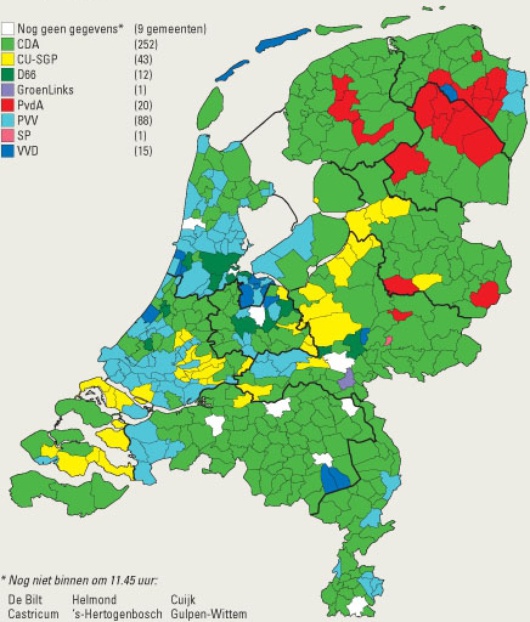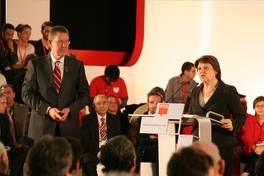
EU election results: France, Holland poor socialist performance
Published on
Translation by:
Lydia BigosThe EU elections between 4 and 7 June 2009 have revealed the high price of political opportunism in 2005, when they opposed the European constitution
 Political franticness often results in paying a high price in voting. In the socialist camp, the results have been particularly disastrous in Holland and France (the two countries that said No to the European constitution in 2005). Socialism in Europe has been traditionally favourable to the political integration of the EU. However, in 2005, as long as it carried the votes of the citizens against the European constitution, in France and Holland, the socialists has campaigned for a No. In the 2009 campaign, they have returned to support euroenthusiasm and the electorate, which looks for parties who are faithful to their principles.
Political franticness often results in paying a high price in voting. In the socialist camp, the results have been particularly disastrous in Holland and France (the two countries that said No to the European constitution in 2005). Socialism in Europe has been traditionally favourable to the political integration of the EU. However, in 2005, as long as it carried the votes of the citizens against the European constitution, in France and Holland, the socialists has campaigned for a No. In the 2009 campaign, they have returned to support euroenthusiasm and the electorate, which looks for parties who are faithful to their principles.
Earning a clear position
 However, these two countries have not become more eurosceptic, despite the success of people like the xenophobe Geert Wilders in the Netherlands, who has gained second place in the running with his 'Party for Freedom' (PVV). In Holland in much the same way, the PVV has increased its votes and its seats. The liberals of the left-D66 and the greens have obtained excellent results, with both formations strongly in favour of European integration. In France, the national front (far right xenophobes) and the new anticapitalist party have almost no representation, while the greens managed a historical record which was parallel to that of the socialist party. On the one side, the big winner was Nicolas Sarkozy with the UMP ('union for a popular movement'), which promotes a greater integration with the European Union.
However, these two countries have not become more eurosceptic, despite the success of people like the xenophobe Geert Wilders in the Netherlands, who has gained second place in the running with his 'Party for Freedom' (PVV). In Holland in much the same way, the PVV has increased its votes and its seats. The liberals of the left-D66 and the greens have obtained excellent results, with both formations strongly in favour of European integration. In France, the national front (far right xenophobes) and the new anticapitalist party have almost no representation, while the greens managed a historical record which was parallel to that of the socialist party. On the one side, the big winner was Nicolas Sarkozy with the UMP ('union for a popular movement'), which promotes a greater integration with the European Union.
 Something similar can be said for the rest of Europe. In Poland, the victory of the conservative governing party has been appealed, the same goes for Italy. And although the British Tories have left the European conservative group, the latter maintain their hegemony with a great result; they won 267 seats out of the 736 available and are the main political group for the third consecutive time since 1999. It is not certain that the fragmentation of European votes will happen. It supposes a reinforcement for the eurosceptics or those against Europe, since they are generally heterogeneous and they are rarely able to work together.
Something similar can be said for the rest of Europe. In Poland, the victory of the conservative governing party has been appealed, the same goes for Italy. And although the British Tories have left the European conservative group, the latter maintain their hegemony with a great result; they won 267 seats out of the 736 available and are the main political group for the third consecutive time since 1999. It is not certain that the fragmentation of European votes will happen. It supposes a reinforcement for the eurosceptics or those against Europe, since they are generally heterogeneous and they are rarely able to work together.
Translated from Francia y Holanda: elecciones gemelas



